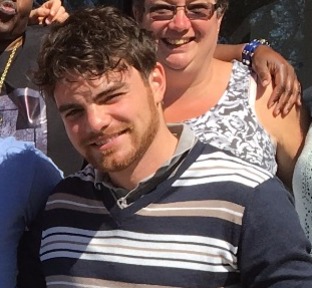
NLP Meets Positive Psychology Reasons To Be Grateful NLP Within Hypnotherapy October 05th & 06th 2024
NLP Anchoring
The brain learns and recalls through an Anchoring process.
Responses, behaviour and feelings can be anchored into situations and memories of experiences. These can be recalled, stored and even transferred to other situations and experiences.
If the client can be confident in one situation we are able to transfer this confidence to another experience, the client may be confident within a work roll, this can be used to develop a confidence in a social situation.
NLP Accessing Cues
Our eyes movements are not random but display which part of the brain being accessed through a thought pattern; previously understood information or constructed etc. This allows us to understand the part of the brain being accessed at any time during a conversation.
Sub Modalities
The clients predominant modalities can be ascertained by a VATK test. adjusting the sub-modalities experienced in a difficult situation changes the clients response to that situation.
Reconstructing The Learning Experience
The client has learned to adapt to his environment. This learning experience can be reconstructed, so the current response is more constructive for the client.
The Client Personality Profile
We all have a personality profile, our individual personality profile predicts our strengths and weaknesses. Modifying this profile will help the client to become more resilient to previous vulnerabilities.
NLP Swish
Swish like anchoring can be used to rewire the brain. by confusing a situation in the clients mind confidence, calm, relaxation, enthusiasm, motivation and even energy can be confused into a situation or experience lacking in the required response.
NLP Reframing
Our brain responds to our perception of an experience and not the factual happening. By reframing the perception of an experience we feel different.
There is little if any difference between fear, anxiety and excitement, the physiological changes are similar, however, if we change the experience of fear to excitement we feel and respond very differently.
NLP Patio Stones
To Gratitude and happiness. As below.
Michael & Manuala Enjoying The SCCP Hypnotherapy Diploma


Stepping into Gratitude NLP Meets Positive Psychology
Gratitude The Open Door To Happiness
How many times do we become angry, frustrated or just sorry for our selves?
We can all think about times when we have felt down, and remember those thoughts that went through our head. One thing is for sure, whether you can remember those irrational thoughts or not, you were not being grateful for everything that you had? And here is the clue, the next time you are feeling down, just take a moment to notice how you are thinking, and what you are thinking about; you will probably find that there is a lack of gratitude.
When you have a moment, think about your friends and family when they are down, complaining, angry or even lonely, they are rarely experiencing or expressing gratitude.
To be negative, we are required to resist feeling grateful.
Perhaps surprisingly, despite being commercially and personally successful, people are often depressed and anxious about many issues. It does not appear to matter how much you point out their successes, what they have, and the obstacles they have overcome in the past, there is a cognitive recognition and acceptance of these facts, without the feelings changing, this person is emotionally stuck in the doldrums!
Try a different tack, don't argue or point out why they should feel so good, ask, what are you grateful for?
People will often start with minor things and build up, I had curry with friends last week, ask what else, people often go on to talk of friends, family home, career, gradually you will notice their whole demeanor change. People move from looking down, round shouldered, to sitting up, looking up whilst talking, even smiling.
Feeling grateful is the closest thing to an instant mood lifter
Being grateful is the secret to being engaged with life and attached to those around us.
Please try, It is so difficult to feel bad about your life when you’re in a state of gratitude. Feeling grateful, whilst being sorry for ourselves is impossible to achieve. The happiness that we create for ourselves with gratitude, is contagious. The next time you notice someone feeling that life is treating them badly, notice the total absence of gratitude. Self focus, feeling hard done-by can be depressing.
Gratitude is different.
Stepping into gratitude is about experiencing worth, internalising those warm feelings, those very attributes then shine out, and people are attracted to this sense of welbeing.
In the past I have thought of gratitude as beholding, a subservient concept, taking crumbs from the plate. Gratitude though is a head up smiling openhearted warm internal glow, with an external expression. It is no coincidence that happy people live the longest, and experience the most personal and professional success in life.
Gratitude makes you healthier, more enthusiastic and resilient about life.
We are aware and attracted to happiness and gratitude in others, although at times it can be difficult to cultivate within our selves. Complaining that others are not grateful though, rarely makes others grateful, and holds us in a victim stance, we have put the answer to our own happiness within the jurisdiction of another, we become a victim.
Step through the door way to happiness this weekend, allow NLP infused with positive psychology to guide you.
Did the SCCP invent this approach?
No, not really, although we do not know of anyone else using, or offering this approach in the clinical practice, or within training. NLP and Positive Psychology, are two accepted validated approaches to change that we have brought together. The combination of the two therapeutic interventions might be new, and we are grateful to share them with you, it will give us pleasure.
Dissociation. Reintegration & Reconstruction Of Developmental Models
Parts therapy and negotiation.
Rogers noted that the therapist needs to be congruent and the client in-congruent. We all have these internal debates, there might be a part of us that wants to lose weight and look slimmer and another part that enjoys food, a little to much. These separate parts can be negotiated with.
Integration and consolidation of the future experience.
The new understanding might be agreed on and reintegrated with a fresh new understanding of the future, with constructive new behaviour and an agreed congruence within the client.
Consolidation of constructive change.
Change requires repetition to become a new way of accepted being this can best be achieved quickly and effectively with NLP and hypnotherapy.
Symptom Signaling to Apposition of Opposites
There are times when the client might experience uncomfortable feelings in the therapy session, what better time to take advantage of the clients real life experience by allowing the client to display their feelings whilst converting the clients experience into a therapeutic intervention.
No Prior Experience Required - An Interest In Learning & Development Essential
October 05th & 06th 2024
Advanced Hypnotherapy Diploma Course
Psychotherapy Diploma
Facilitating this weekend, James is an NLP Master Trainer and Surrey College of Clinical Hypnotherapy & Psychotherapy Principle.
'In my clinical practice I use an eclectic mix of therapeutic approaches and include NLP in some form, everyday.
Date: October 05th & 06th 2022
Duration: Two Day Workshop
Course Fee: £235
Location: University of Surrey

